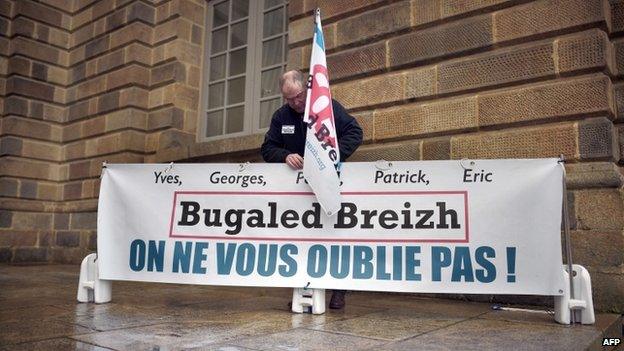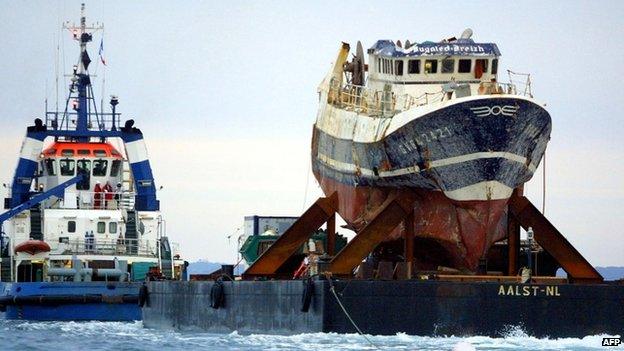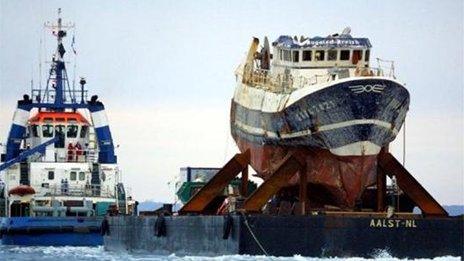Bugaled Breizh: French families fight shipwreck ruling
- Published

A banner saying "We won't forget you" paid tribute to the five victims of the sinking
Eleven years after the deaths of five sailors in the mysterious sinking of French trawler Bugaled Breizh off Cornwall, their families have launched a final appeal in court.
Relatives believe the fishing boat was dragged underwater when a submarine became snagged in its nets.
But that theory was ruled out and the case was dismissed last year.
The advocate general called on the appeal court in Rennes to confirm that the case was closed.
The case was adjourned for further deliberation until May.
The Bugaled Breizh went down in broad daylight in relatively calm seas on 15 January 2004, off the Lizard in Cornwall, in south-west England.
In the years that followed, the families have sought to find out what led to the sinking.

The trawler was towed to the French military port of Brest in July 2004
In 2007, it emerged that traces of titanium had been found on the boat's cables, a substance sometimes found on the hulls of submarines.
The following year, an inquiry in the Breton town of Quimper ruled that the submarine theory was the "most serious" as a day before the sinking, Nato military exercises had taken place in the area.
But allegations that a Royal Navy submarine, HMS Turbulent, was involved have since been discounted and French maritime investigators said the Bugaled Breizh's cables had probably snagged on a sand bank.
After years of legal wrangling, the case was eventually thrown out by a court in Nantes in 2014.
A lawyer for the families described Tuesday's appeal as "make or break". Christian Bergot said he would ask the appeal court in Rennes to re-open the inquiry, based on allegations that a US submarine had been in the area at the time.
Thierry Lemetayer, whose father died in the sinking, told French media that he would continue to fight for justice.
"First for my father, but for all the fishermen, too, who have one of the most dangerous jobs in the world," he said.
- Published28 January 2013

- Published2 July 2010
- Published5 March 2013
